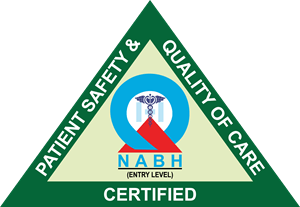Medication Dispensing
What Is Medication Dispensing ?
Medication dispensing refers to the process of preparing and providing prescribed medications to patients. This important aspect of pharmacy practice ensures that patients receive the correct medications, in the appropriate dosage forms, and with clear instructions for use.
Prescription Verification: Before dispensing medication, pharmacists or pharmacy technicians verify the prescription provided by a licensed healthcare provider. They confirm that it is valid, accurate, and appropriate for the patient's condition. Medication Selection: Based on the prescription, the pharmacist or pharmacy technician selects the specific medication, strength, and dosage form (such as tablets, capsules, liquid, etc.) required for the patient. Labeling and Packaging: The medication container is labeled with important information, including the patient's name, the medication name, dosage instructions, potential side effects, and any special instructions. Proper packaging ensures the safety and integrity of the medication. Patient Counseling: When dispensing medications, pharmacists provide counseling to the patient. They offer information about how to take the medication, potential interactions with other drugs or food, and what to do in case of missed doses or adverse reactions. Checking for Allergies and Interactions: Pharmacists review the patient's medical history and medication profile to identify any allergies or potential interactions with other medications the patient may be taking. Patient Education: Pharmacists educate patients about the purpose of the medication, expected benefits, potential side effects, and any specific precautions or special instructions for use. Proper Dosage and Administration: Pharmacists ensure that the prescribed dosage is appropriate for the patient's age, weight, and condition. They provide clear instructions on how to administer the medication. Documentation: Proper documentation of the dispensing process is crucial for record-keeping and patient safety. This includes recording the details of the prescription, dispensing information, and patient counseling. Verification of Controlled Substances: For medications classified as controlled substances due to their potential for misuse or addiction, additional regulatory requirements must be met, including proper documentation, record-keeping, and reporting. Patient Safety Measures: Pharmacists are diligent in ensuring that patients receive the correct medication. They employ safety checks, such as verifying the patient's identity, double-checking medication selections, and using technology to prevent errors. Refill Management: Pharmacists monitor prescription refills, ensuring that patients receive timely and appropriate medication refills as needed. Medication dispensing is a critical aspect of pharmacy practice that requires attention to detail, accuracy, and a commitment to patient safety. It plays a vital role in ensuring that patients receive the right medications and have a clear understanding of how to use them effectively.

What Is The Main Cause Of Medication Dispensing ?
The main cause of medication dispensing is to ensure that patients receive the correct medications, in the appropriate dosage forms, with clear instructions for use, as prescribed by a licensed healthcare provider. This process serves several important purposes in healthcare:
- Patient Safety: The primary goal of medication dispensing is to safeguard the health and well-being of patients. Providing the correct medication and dosage helps prevent medication errors and potential harm to patients.
- Optimal Therapeutic Outcomes: Dispensing the right medications ensures that patients receive the treatment they need to manage their health conditions effectively. This is essential for achieving positive therapeutic outcomes.
- Compliance with Prescriptions: Medication dispensing ensures that patients have access to the prescribed medications in a timely manner, allowing them to follow their treatment plans and achieve the best possible health outcomes.
- Accuracy and Precision: The dispensing process involves careful verification of prescriptions, accurate selection of medications, and precise labeling to guarantee that patients receive the correct medication in the correct dosage form and strength.
- Patient Education and Counseling: When dispensing medications, pharmacists provide important information to patients about how to take the medication, potential interactions, possible side effects, and what to do in case of missed doses or adverse reactions. This empowers patients to use their medications safely and effectively.
Monitoring for Allergies and Interactions: Pharmacists play a crucial role in identifying any allergies or potential interactions between prescribed medications and a patient's existing drug regimen or medical history. This helps prevent adverse reactions. Ensuring Regulatory Compliance: Medication dispensing practices must adhere to local, state, and federal laws and regulations governing the practice of pharmacy. This includes compliance with controlled substance regulations and other legal requirements. Documentation and Record-Keeping: Proper documentation of the dispensing process is essential for maintaining accurate patient records and ensuring continuity of care. This information may be used for future reference, audits, or in the event of legal or regulatory inquiries. Preventing Medication Errors: Rigorous safety checks are in place to prevent medication errors, including verification of patient identity, double-checking medication selections, and using technology to support accurate dispensing. Facilitating Continuity of Care: Medication dispensing helps ensure that patients have a consistent and reliable source for obtaining their prescribed medications, supporting ongoing management of their health conditions. Overall, medication dispensing is a critical aspect of healthcare that requires precision, attention to detail, and a strong commitment to patient safety. It plays a vital role in the safe and effective management of patients' health conditions.
Clinical Services
Facilities
24 Hours Services



